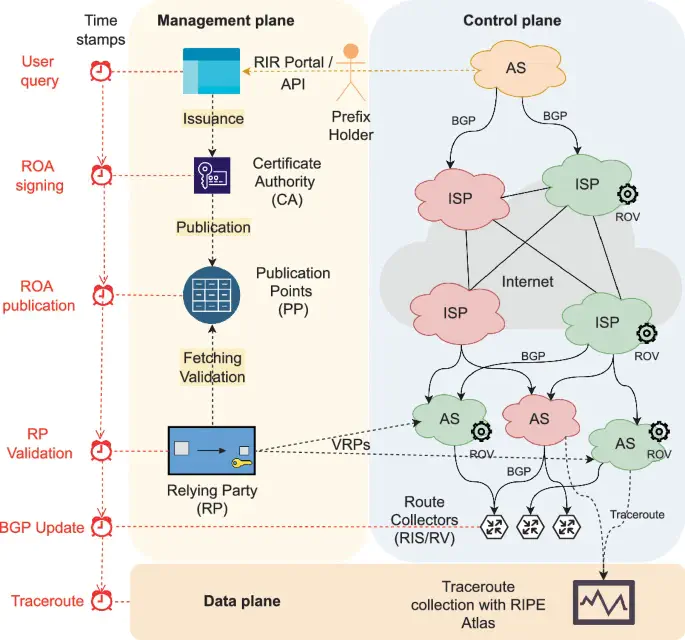
Abstract
As RPKI is becoming part of ISPs’ daily operations and Route Origin Validation is getting widely deployed, one wonders how long it takes for the effect of RPKI changes to appear in the data plane. Does an operator that adds, fixes, or removes a Route Origin Authorization (ROA) have time to brew coffee or rather enjoy a long meal before the Internet routing infrastructure integrates the new information and the operator can assess the changes and resume work? The chain of ROA publication, from creation at Certification Authorities all the way to the routers and the effect on the data plane involves a large number of players, is not instantaneous, and is often dominated by ad hoc administrative decisions. This is the first comprehensive study to measure the entire ecosystem of ROA manipulation by all five Regional Internet Registries (RIRs), propagation on the management plane to Relying Parties (RPs) and to routers; measure the effect on BGP as seen by global control plane monitors; and finally, measure the effects on data plane latency and reachability. We found that RIRs usually publish new RPKI information within five minutes, except APNIC which averages ten minutes slower. At least one national CA is said to publish daily. We observe significant disparities in ISPs’ reaction time to new RPKI information, ranging from a few minutes to one hour. The delay for ROA deletion is significantly longer than for ROA creation as RPs and BGP strive to maintain reachability. Incidentally, we found and reported significant issues in the management plane of two RIRs and a Tier1 network.